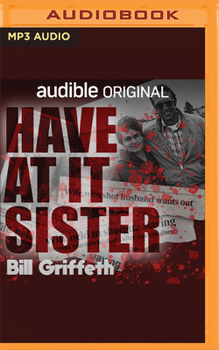Have at It, Sister
Gloria Burtzlaff feared for her life one day back in April of 1991 when her abusive husband, Larry, drunk and violent, slapped her, hit her, and began pelting her with glasses. After he tried to drown her in a tub, she got the family shotgun and confronted him in his underwear. "Larry, I'm going to kill you," she declared. Defense lawyers would later claim he lifted a glass as if to say, "Have at it, sister."
Have at It, Sister is a true-crime tale about Gloria, a South Dakota woman who shot her abusive husband and was put on trial in a precedent-setting case. She's also a cousin of the wife of Bill Griffeth, a retired TV anchor on CNBC and PBS, and her story drew him into a years-long obsession to try to understand what was really at the heart of the shocking killing. How does a seemingly ordinary South Dakota marriage descend into abuse and murder? How have our views on abuse and justifiable homicide changed since the 1990s?
This is a true-crime story that's not just about murder and mayhem; it's about something real, relevant, and important. At the time that Gloria's trial was held in the summer of 1991, South Dakota was the only state in the country not to allow expert witnesses to offer a diagnosis that a female defendant suffered from a psychological condition called "battered woman syndrome" as part of a self-defense plea in a murder trial. Gloria's case helped lead to a change in the law, and Bill looks into why the case made legal waves and struck such a nerve with the public. Through the up and downs and appeals of her case, we see how society's view of domestic violence in general, and battered women in particular, evolve.
As #MeToo continues to empower women, her case has become increasingly relevant. Like I'll Be Gone in the Dark, this is a true-crime story that hits close to home. Bill Griffeth has served as an anchor at CNBC and a former cohost of PBS' Nightly Business Report.
Related Subjects
True Crime




